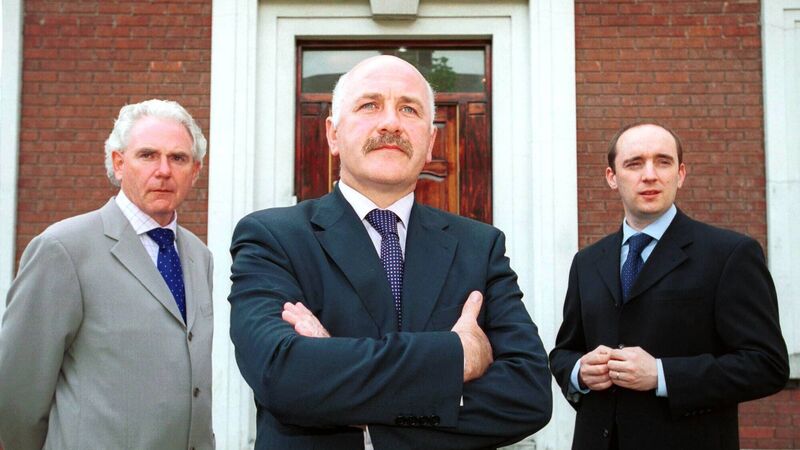Four senior Custom House Capital executives sentenced for roles in 'sophisticated' operation to defraud investors

Custom House Capital’s John Mulholland, Harry Cassidy, and John Whyte, seen here in 2003, were three of the four men sentenced today. File picture
Four senior executives of Custom House Capital have been sentenced for their roles in a “highly organised” and “sophisticated” operation to defraud investors in the firm over a decade ago.
The company's former CEO Harry Cassidy, aged 67, was handed a sentence of six years and 10 months by Judge Orla Crowe on Friday at Dublin Circuit Criminal Court.











